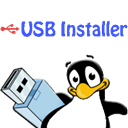The Best Rufus Alternatives for Creating Bootable USB Drives
Rufus is a popular, lightweight utility for creating bootable USB flash drives, essential for tasks like flashing BIOS, installing operating systems, or running live CDs. While incredibly efficient and effective, some users may seek a Rufus alternative for various reasons, including specific operating system compatibility, a different user interface preference, or advanced features. This article explores the top alternatives to Rufus, helping you find the perfect tool for your bootable USB needs.
Top Rufus Alternatives
Whether you're looking for cross-platform support, a more beginner-friendly interface, or advanced multi-boot capabilities, there's a Rufus alternative out there for you. Let's dive into some of the best options available.

UNetbootin
UNetbootin is a cross-platform (Free, Open Source, Mac, Windows, Linux, PortableApps.com) Rufus alternative that excels at creating bootable Live USB drives. It's particularly useful for Linux users as it includes a built-in downloader for various Linux ISO images and rescue disks, making the process incredibly straightforward. Its features include creating bootable USBs, automatic downloading, and support for persistent Linux installations.

balenaEtcher
balenaEtcher is a free and open-source image burner available for Windows, macOS, and GNU/Linux. This Rufus alternative stands out for its incredibly simple and fast interface, making it very user-friendly, especially for beginners. Key features include writing ISOs to SD cards, creating bootable USBs, a modern Material Design GUI, and validated burning for reliability.

YUMI
YUMI (Your Universal Multiboot Installer) is a free and open-source Rufus alternative primarily for Windows (also compatible with Wine/WineBottler). It's renowned for its ability to create Multiboot Bootable USB Flash Drives containing multiple operating systems, antivirus utilities, and diagnostic tools. Features include creating multiboot USBs, persistent storage options, and UEFI support.

dd
For users comfortable with the command line, 'dd' is a powerful, free, and open-source utility available on Unix and Unix-like operating systems (Mac, Linux, BSD). While not a GUI-based Rufus alternative, 'dd' offers unparalleled flexibility for converting and copying files, making it suitable for creating bootable images directly from the terminal. Its primary features are its command-line interface, ability to burn ISOs, and create disk images.

MultiBootUSB
MultiBootUSB is a free and open-source, cross-platform (Windows, Linux) Rufus alternative designed for creating live Linux distro multi-boot USBs nondestructively. It provides a user-friendly way to put multiple operating systems on a single USB drive. Key features include multiboot USB creation, support for both GUI and command-line interfaces, and the ability to install Syslinux.

Universal USB Installer
Universal USB Installer is a free and open-source Rufus alternative for Windows that simplifies creating Live Linux USB drives. It offers a selection of Linux Distributions to choose from and places them on your USB Flash Drive. Notable features include creating bootable USBs, support for multiple languages, persistent Linux storage, and no need to format the drive beforehand.

LinuxLive USB Creator
LinuxLive USB Creator (LiLi USB Creator) is a free and open-source software for Windows users looking for a Rufus alternative specifically for Linux. It allows you to create a bootable Live USB key with a Linux distribution. A unique feature is its ability to virtualize the Linux distribution directly from the USB drive within Windows, offering a convenient way to test the OS. It also supports creating UEFI bootable drives and formatting USB to FAT.

Easy2Boot
Easy2Boot is a highly flexible and configurable free Rufus alternative for Windows and Linux users. It specializes in multiboot solutions for USB drives, offering extensive support for various ISOs and IMG files without requiring them to be converted or extracted. Its key features include multi-boot capabilities, UEFI support, and the ability to format USB drives to FAT or NTFS.

UltraISO
UltraISO is a commercial Rufus alternative for Windows, primarily focused on CD/DVD/ISO image file creation and editing. While not open source, it's a powerful tool for manipulating ISO files and can create bootable CDs and DVDs, extending its utility to bootable USB creation in many scenarios. Features include burning ISOs, converting image formats, and creating bootable media.

Win32 Disk Imager
Win32 Disk Imager is a free and open-source Rufus alternative for Windows. It's a utility designed to write raw disk images to removable devices (like USB sticks or SD cards) or back up a removable device to a raw image file. It's particularly useful for creating bootable Raspberry Pi SD cards and other embedded device images. Key features include creating bootable USBs, disk imaging, and disk to image file conversion.
The world of bootable USB creators offers a rich variety beyond Rufus. Each Rufus alternative brings its own strengths, whether it's cross-platform compatibility, a focus on specific operating systems, advanced multi-boot capabilities, or a simplified user interface. We encourage you to explore these options and choose the tool that best aligns with your technical needs and comfort level for creating reliable bootable media.